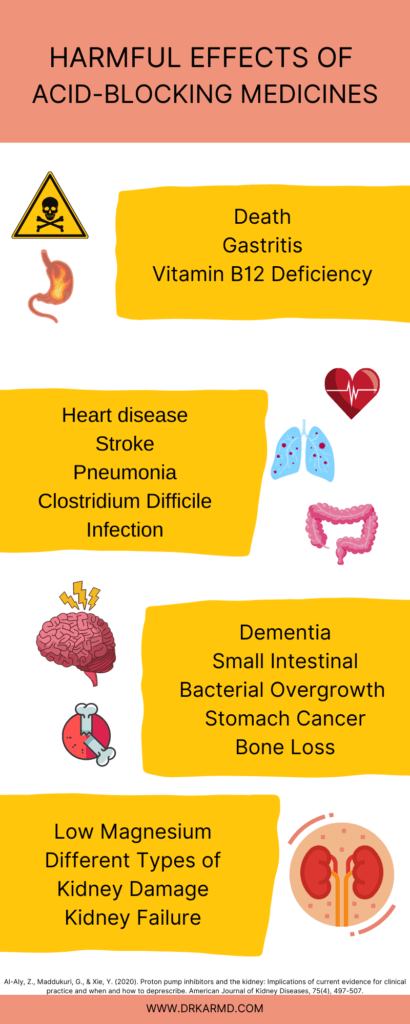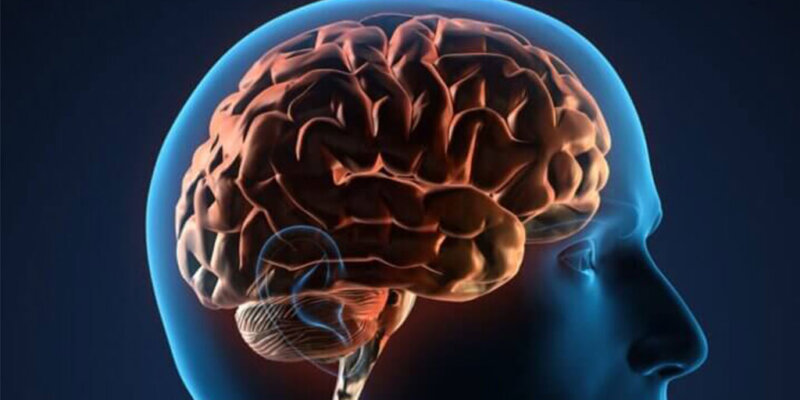Patient story:
A 59-year-old woman has diabetes for 20 years with early kidney damage, presently on insulin injections. She had an angioplasty nine years ago because of chest pain from blocked heart arteries. Besides insulin, she was taking Plavix (Clopidogrel) and Nexium (PPI). Plavix works on blood cells called platelets to prevent them from sticking together to cause excessive clotting. Given that she had an angioplasty, Plavix was essential for her.
She didn’t have stomach ulcers or acid reflux. Why was she on Nexium? She said her doctor had prescribed it, but she wasn’t sure why!
Long-term use of PPI without indications has serious consequences.
Drugs like omeprazole, lansoprazole, pantoprazole are called Proton Pump Inhibitors. You may know them by their commercial names like Nexium, Omez etc.
Your doctor may have prescribed these medicines because you had heartburn. You had pain and discomfort or a burning sensation in the upper abdomen, sometimes described as “acidity” or “gastric trouble.”
PPIs work by blocking your stomach cells from making acid.
But stomach acid is present for a reason!
Your stomach makes acid because it has essential functions. Hydrochloric acid produced in the stomach helps in protein digestion and in killing some of the bacteria present in food.
Though it is widely assumed that your reflux symptoms arise from high stomach acid, that is not always so!
Harmful effects of PPI use
Studies have shown that between 25 to 70% of people using PPIs do so without a valid indication. In some countries, PPIs are available even without a prescription. ((Ref))
Harmful effects of inappropriate PPI use

PPIs reduce the effectivity of Clopidogrel
Clopidogrel (Plavix) is used in after angina or angioplasty to prevent blood from clotting. A 2009 paper from the journal JAMA showed that the risk of an adverse outcome following an acute coronary event was much higher in those taking Clopidogrel and PPIs simultaneously than in those not taking PPIs with Clopidogrel. The PPIs reduced the beneficial effects of Clopidogrel. ((Ref))
What are the conditions when PPIs are indicated?
- Peptic ulcers
- As part of the treatment protocol for H Pylori infection
- Esophagitis
- Prevention of painkiller-induced ulcers.
- Zollinger Ellison syndrome
What can you do if you have reflux?
- Start with food. An elimination diet will take care of troublesome food.
- Eat low carbohydrate food
- Reduce your eating window. Your gut needs resting time.
- Early dinner. Don’t eat nearer to your bedtime.
- Supplements like Melatonin 3 mg or Peppermint Oil may help.
What if you find it challenging to stop PPIs?
Talk to your doctor to find out if there are any alternatives.
Some of you are psychologically dependant on these medications, though you may not actually need them. Don’t stop them suddenly. There is a specific process of deprescribing PPIs. ((Ref))
Going back to my patient at the beginning of this article……
It wasn’t difficult to stop her Nexium because she didn’t have any absolute indications. On the contrary, continuing PPIs could worsen her kidney function and increase her risk of heart disease.
Bottom Line:
Find out why you are on certain medications. If they are not mission-critical, talk to your doctor about reducing your medications and find out how to safely reduce meds. A deprescribing appointment should be a part of your medical program.


